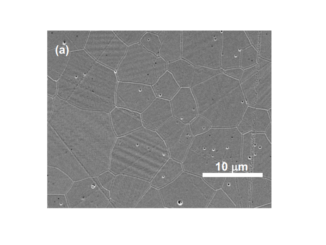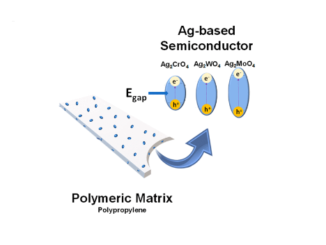
Influence of processing parameters variation on the development of geopolymeric ceramic blocks with calcined kaolinite clay
Abstract: The cement industry is responsible for a considerable part of the emission of gases that cause the greenhouse effect. In this context, geopolymer materials have been the subject of extensive studies, as they are an ecologically sustainable viable alternative to Portland cement. The geopolymer consists of a part rich in silica and alumina and another alkaline activating fraction, not having burning steps in its production chain, which consequently reduces the emission of CO2. Geopolymers also allow the incorporation of specific residues in its precursor part, such as calcined clays. The specimens for this study were produced by the molding process, using commercial metakaolin as the basis for the precursor fraction. After demolding, the test cups were subjected to ambient curing at 25 °C and thermal curing at 80 °C, for periods of 7, 14 and 28 days. The objective of this work was to analyze the behavior of geopolymers specimens against the variation of several parameters such as percentage of calcined clay (CC) incorporation into metakaolin in 10% and 20%, its granulometry in 100 and 200 Mesh, the molar ratio of SiO2/Al2O3, type and period of cure to evaluate technological properties such as resistance to bending, open porosity, water absorption, linear shrinkage and bulk density, aiming for future applications in the production of ceramic bricks. The results showed that an increase in the percentage of CC incorporation contributes to an improvement in the flexural strength, reaching 4.88 MPa to 20%. The molar SiO2/Al2O3 ratio of 3.0 was the most ideal. The importance of this study is linked to the evaluation of several parameters for the incorporation of calcined clay, in order to obtain properties required for future applications in ceramic bricks.
Author(s): Linhares Junior, J. A.; de Azevedo, A. R. G.; Marvila, M. T.; Teixeira, S. R.; Fediuk, R.; Vieira, C. M. F.
Case Studies in Construction Materials
Published: June 2022, Volume 16, e00897
DOI: https://doi.org/10.1016/j.cscm.2022.e00897
CDMF
The CDMF, hosted at the Federal University of São Carlos (UFSCar), is one of the Research, Innovation and Dissemination Centers (RIDC) supported by the São Paulo State Research Support Foundation (Fapesp), and also receives investment from the National Council Scientific and Technological Development (CNPq), from the National Institute of Science and Technology of Materials in Nanotechnology (INCTMN).




